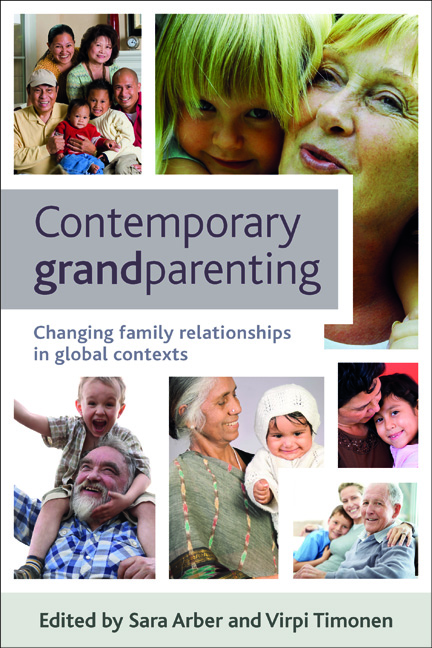six - Grandparenting in the context of care for grandchildren by foreign domestic workers
Published online by Cambridge University Press: 01 September 2022
Summary
Introduction
Historically, childcare needs in Asia have been met within the family. Moreover, participation of grandparents in providing care for their grandchildren has been the norm. In the context of declining fertility and an ageing population, as in some contemporary South East Asian societies, it is pertinent to consider how the nature and character of intergenerational relations is changing with respect to childcare. For example, to what extent does the norm of obligation for grandparents to provide childcare assistance still hold? What happens to intergenerational interactions when co-residence of three generations of family members declines? In the midst of global migration, what is the relationship between parents, grandparents and foreign domestic workers (FDWs) in a host country? This chapter addresses these questions by drawing on qualitative data obtained in the fast-changing globalised city-state of Singapore.
Intergenerational solidarity, conflict and ambivalence
Intergenerational relations can be analysed primarily through three lenses – intergenerational solidarity, conflict and ambivalence (see Chapter One). Bengtson and colleagues (1976) developed the intergenerational solidarity model to describe sentiments, behaviours and attitudes associated with intergenerational relationships in families. According to Bengtson and Oyama (2007, p 2), intergenerational solidarity can be succinctly defined as ‘social cohesion between generations’. Bengtson and Schrader (1982) suggested that there are six dimensions of parent–adult child solidarity: associational, affectual, consensual, functional, normative and structural. Bengtson and Oyama (2007, p 8) reiterated the six dimensions as follows:
• affectual solidarity: sentiments and evaluations that family members express concerning their relationships with one another;
• associational solidarity: type and frequency of contact between family members;
• consensual solidarity: agreement in opinions, values, and orientations between generations;
• functional solidarity: giving and receiving of support across generations;
• normative solidarity: expectations regarding filial obligations and parental obligations, as well as norms concerning the importance of familial values;
• structural solidarity: the ‘opportunity structure’ for cross-generational interaction, for example reflecting geographic proximity between family members.
- Type
- Chapter
- Information
- Contemporary GrandparentingChanging Family Relationships in Global Contexts, pp. 113 - 136Publisher: Bristol University PressPrint publication year: 2012



